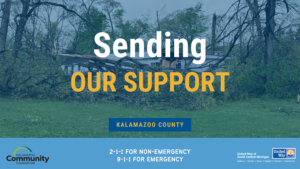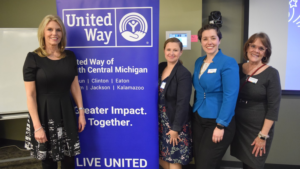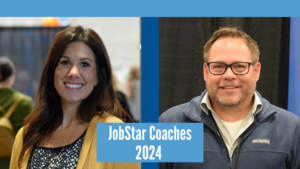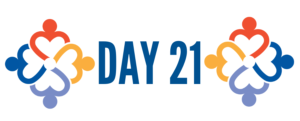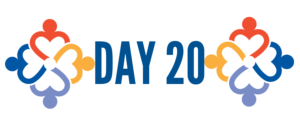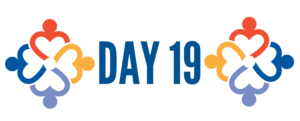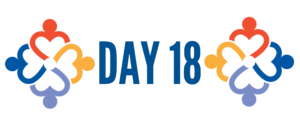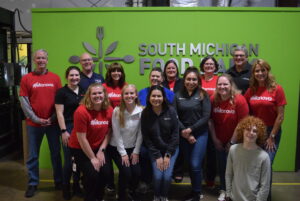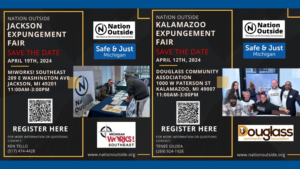
United for Equity in Jackson County
by Ken Toll
For a while now, you’ve read my blogs or heard me speak about poverty. You’ve heard the statistic: 4 in 10 households are financially unstable, with a full 15 percent of Jackson County residents living below the poverty line.
That poverty line is far too low to start with. For a single person, it is $15,060. For a family of four, it is just $30,750. Think about it: 15 out of every 100 Jackson County residents are scraping by on this meager income.
That’s a hard fact for our community to face. It’s even harder to face the reality—and the complexity—of poverty among African-Americans and Hispanics in Jackson County.
For many people, race is an uncomfortable topic. But we need to get comfortable with being uncomfortable if we ever hope to vanquish poverty and build a vibrant community for everyone.
I did some math using diversity and poverty numbers from the U.S. Census Bureau and consolidated by DataUSA. What I found disturbed me. If you’re a white resident in Jackson County, you have slightly more than a 1 in 7 chance of being in poverty. If you’re Hispanic, it’s a little over 1 in 5. If you’re black, it’s well over 1 in 3.
Why? The answer to that question could provide fodder for dozens of blogs. Put simply, it’s due to disparities faced by ethnic groups in employment, health and wealth that go back many generations. Blacks were enslaved for hundreds of years and segregated for more than a century after. Hispanics and Native Americans faced persecution for generations. While in recent decades we’ve passed laws and policies to try and turn things around, we have not shown much progress toward actually addressing the impact of years upon years of bias and discrimination woven into our social, academic and economic systems.
Imagine you were born into a family in poverty. Your path to financial stability and success starts far behind a person born into middle or upper class wealth, and you have far fewer supports to help you along the way. The research is very clear that, the farther back you have to start, the less likely you’ll reach the goal. If you’re black or Hispanic, the racial bias we haven’t yet eliminated from our systems moves the starting line even farther back.
It’s easy to think, “Well, the answer is equality. Everyone gets to hop on the same path and make their way in life.” But as I said, not everyone gets to step up to the same startling line. In fact, not everyone gets to follow the same path. For many people, especially ethnic minorities, that path has a lot of hurdles that relate to historical—and modern-day—biases.
So the answer isn’t equality. It’s equity—everyone has what he or she needs to thrive. No matter who they are. No matter where they live. No matter the challenges they face.
It’s not about giving people a free ride; it’s about making sure people have the specific tools they need to get beyond the specific barriers they face. That’s what our vision means at United Way: A community rich in opportunities to eliminate poverty and allow all people to achieve financial stability and success.
Here’s the reality: We’ll never beat poverty in Jackson County without facing race. Barriers and inequities from long ago still exist, and we need to identify and remove them all.
That’s why United Way recently supported our community’s effort to provide scholarships for 43 residents to attend Facing Race: A National Conference in Detroit. Ranging from high school students to adults, these Jackson County ambassadors learned what it’s like to live as an ethnic minority member in America and how, together, we can create a more equitable community. Here’s what they had to say:
This was a life-changing weekend for me. I didn’t expect to cry as often as I did. The powerful things I’ve heard and learned will never leave me the same.
I hope it provides an opportunity for many in our community to learn and bring Jackson peace in these regards.
God is truly amazing. We were blessed by him to help us understand who we are as a community. We shall overcome.
Let’s ban together to talk about putting action, I repeat action, on hardcore issues in Jackson.
That’s commitment! That’s enthusiasm! That’s the kind of engagement we need to tackle poverty in all its forms in Jackson County.
We at United Way are just beginning to talk about equity in our work. We’ll continue to weave it into our programs and partnerships, and to help all of our donors and supporters understand why this work is so necessary, and so promising. I look forward to advancing this work with each of you.
Support Equity in Jackson County

